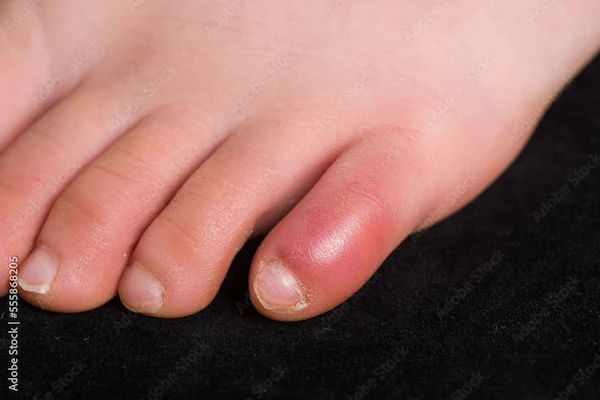10 Science Backed Ways to Boost Your Immunity Naturally at Home
Discover 10 science-backed ways to naturally boost your immunity at home. From nutrition and sleep to stress management, find simple, effective tips to stay healthy.

Written by Dr. M L Ezhilarasan
Reviewed by Dr. D Bhanu Prakash MBBS, AFIH, Advanced certificate in critical care medicine, Fellowship in critical care medicine
Last updated on 13th Jan, 2026

In a world where we’re constantly exposed to germs, having a robust immune system is your best defense. While you can't buy immunity in a bottle, you can build it from the comfort of your home through simple, evidence-based lifestyle choices. This guide will walk you through the most effective, natural strategies to strengthen your immune response and empower your body’s innate ability to protect itself. Forget quick fixes; we’re focusing on sustainable habits that support your long-term wellness.
Understanding Your Immune System: Your Body's Natural Defense
Before we dive into the "how," it's crucial to understand the "what." Your immune system is a complex network of cells, tissues, and organs that work in concert to defend your body against pathogens like viruses, bacteria, and other invaders. It's not a single entity but a sophisticated army with many specialized units.
Innate Immunity vs. Adaptive Immunity: The TwoTiered System
Your defense operates on two levels. Your innate immunity is your first line of defense—a general protection you were born with, like your skin, mucous membranes, and certain cells that attack foreign invaders. If a pathogen breaches this barrier, your adaptive immunity kicks in. This system learns to recognize specific germs and creates targeted antibodies to destroy them and remember them for the future. This is how vaccines work and why you typically only get sick once from diseases like chickenpox.
Why There's No "Quick Fix" for Immune Health?
It's a common misconception that you can "boost" your immunity overnight with a super supplement. In reality, a healthy immune system is about balance and support. An overactive immune system can lead to allergies and autoimmune diseases. The goal isn't to rev it up unnecessarily but to provide it with the right tools to function optimally and respond appropriately to threats. This is achieved through consistent, daily habits.
Consult a General Physician for the best advice
Fuel Your Defenses: The Cornerstone of an ImmuneBoosting Diet
You truly are what you eat, especially when it comes to your immune function. Every cell in your body, including your immune cells, requires high-quality fuel to perform its job. A diet rich in whole, nutrient-dense foods provides the vitamins, minerals, and antioxidants necessary to build and maintain a strong defense system.
Power Up with Plants: The Role of Fruits and Vegetables
Fruits and vegetables are packed with essential nutrients. They are rich in antioxidants which help combat oxidative stress and inflammation—two processes that can suppress your immune response. Aim for a "rainbow on your plate" to ensure a wide variety of these protective compounds.
Vitamin C Superstars: Citrus, Bell Peppers, and Broccoli
Vitamin C is a famous immune supporter. It encourages the production of white blood cells, which are key to fighting infections. While oranges get all the glory, red bell peppers contain almost twice as much vitamin C per ounce. Other excellent sources include kiwi, strawberries, broccoli, and Brussels sprouts.
Vitamin E Powerhouses: Nuts, Seeds, and Spinach
Vitamin E is a powerful antioxidant that helps the body fight off infection. It’s a fatsoluble vitamin, meaning it requires the presence of fat to be absorbed properly. Great sources include almonds, peanuts, sunflower seeds, and spinach.
The Mighty Micronutrients: Zinc, Selenium, and Iron
Several minerals play pivotal roles in immunity. Zinc is crucial for immune cell development and communication. A deficiency can significantly impair immune function. Find it in lean meats, poultry, seafood, legumes, and seeds. Selenium and Iron are also vital for the growth of immune cells and their proper function.
Don't Forget the Gut: Probiotics and Gut Health
A large portion of your immune system resides in your gut. Gut health and immunity are deeply intertwined. Fermented foods like yogurt (with live and active cultures), kefir, kimchi, sauerkraut, and kombucha are rich in probiotics—the "good" bacteria that help maintain a healthy balance in your digestive system and support the immune response.
The Restorative Power of Sleep: Your Immune System's Reset Button
If you’re sacrificing sleep, you’re sacrificing immunity. Sleep is not a passive state; it’s a critical period of restoration and repair for your entire body, including your immune system.
How Sleep Deprivation Weakens Your Defenses?
During sleep, your body produces and distributes key immune cells like cytokines (which target infection and inflammation), T cells, and interleukin. When you don't get enough quality sleep, the production of these protective proteins decreases. Studies have shown that people who don't get enough quality sleep are more likely to get sick after being exposed to a virus, like the common cold.
Tips for Achieving Quality, ImmuneSupporting Sleep
Aim for 79 hours of quality sleep per night. To improve your sleep hygiene:
Stick to a consistent sleep schedule, even on weekends.
Ensure your bedroom is dark, quiet, and cool.
Avoid screens (phone, TV, laptop) for at least an hour before bed.
Avoid large meals, caffeine, and alcohol before bedtime.
Move Your Body: How Exercise Moderates Immunity
Regular physical activity is a powerful pillar of immune health. It’s not about running a marathon; it’s about consistent, moderate movement.
The Sweet Spot: Moderate, Regular Exercise
Moderate exercise can give your immune system a welcome boost. It promotes good circulation, which allows immune cells to move through the body freely and do their job efficiently. Activities like brisk walking, cycling, jogging, swimming, and light hiking are all excellent choices. Aim for at least 150 minutes of moderate exercise per week.
Why Overtraining Can Be Counterproductive
More is not always better. Prolonged, high-intensity exercise without adequate recovery can actually suppress your immune system, making you more susceptible to illness. This is why elite athletes often have to be extra careful during their training cycles. Listen to your body and allow for rest and recovery days.
Tame the Flame: Managing Stress for Immune Resilience
In our fast paced world, chronic stress is a silent killer for immune health. Understanding how to manage it is nonnegotiable for a strong defense.
The Cortisol Connection: How Stress Hormones Suppress Immunity
When you're under chronic stress, your body produces hormones like cortisol. In short bursts, cortisol can actually limit inflammation. However, when cortisol levels are consistently high, it essentially tells the immune system to "stand down." This leads to chronic inflammation and suppresses the effectiveness of your immune cells, making you more vulnerable to infections and slowing wound healing.
Effective StressReduction Techniques for Home
You can’t avoid stress, but you can change how you respond to it. Proven techniques include:
Meditation and Mindfulness: Even 510 minutes a day can reduce stress.
Yoga: Combines physical movement with breathwork and meditation.
Deep Breathing Exercises: Activates the parasympathetic nervous system to promote calm.
Engaging in Hobbies: Reading, gardening, or playing music can be powerful stress relievers.
Hydration and Immunity: The Overlooked Essential
Water is fundamental to every bodily function, and immune health is no exception.
How Water Supports Your Immune Function?
Lymph, the fluid that carries infection-fighting immune cells around your body, is largely composed of water. Even mild dehydration can slow down the movement of lymph, potentially leading to a compromised immune system. Furthermore, the mucous membranes in your respiratory system—a key first line of defense—require moisture to effectively trap pathogens. While there's no magic number, drinking enough fluid so that your urine is pale yellow is a good general guideline.
Sunshine Vitamin: The Critical Role of Vitamin D
Often called the "sunshine vitamin," Vitamin D is a critical modulator of the immune response. It helps activate your immune defenses and is essential for the function of T cells and macrophages.
Natural Sources vs. Supplementation
Your body produces vitamin D naturally when your skin is exposed to sunlight. However, many people are deficient, especially in winter months or if they use sunscreen consistently. Dietary sources are limited but include fatty fish (salmon, mackerel), fortified milk, and egg yolks. Due to the challenges of getting enough from sun and food alone, many health professionals recommend supplementation. It's best to get your levels tested by a doctor to determine the right dosage for you.
Habits to Avoid: What Suppresses Your Immune System
Just as important as what you should do is what you shouldn't do. Certain lifestyle choices can significantly undermine all your other healthy effortsThe Impact of Smoking and Vaping
Smoking and vaping are incredibly damaging to the immune system. The chemicals in tobacco smoke can interfere with the growth and function of immune cells. They also damage the cilia—the tiny hairs that line your respiratory tract and sweep germs away—making it easier for pathogens to enter the lungs.
Alcohol and Its Effect on Immune Cells
Excessive alcohol consumption can weaken the immune system and make the body more susceptible to infections. It disrupts the gut microbiome, damages immune cells in the lungs, and impairs the function of immune cells in the bloodstream. If you drink, do so in moderation.
The Dangers of UltraProcessed Foods and Sugar
A diet high in ultra processed foods and added sugars can promote inflammation and create an imbalance in gut bacteria. This chronic state of inflammation can crowd out the immune system and prevent it from functioning properly. Reducing intake of sugary drinks, snacks, and processed meats can have a profound positive impact on your immune resilience.
Quick Takeaways: Your At Home Immunity Checklist
Eat the Rainbow: Prioritize a diverse diet full of colorful fruits and vegetables for antioxidants and vitamins.
Sleep is NonNegotiable: Aim for 79 hours of quality sleep to allow your body to repair and produce immune cells.
Move Regularly: Engage in moderate exercise most days of the week to promote healthy circulation of immune cells.
Manage Your Stress: Incorporate daily practices like meditation, deep breathing, or yoga to keep stress hormones in check.
Stay Hydrated: Drink water throughout the day to support all bodily functions, including the lymphatic system.
Consider Vitamin D: Talk to your doctor about testing your levels and whether a supplement is right for you.
Avoid ImmuneSuppressors: Limit alcohol, avoid smoking, and reduce your intake of sugar and processed foods.
Conclusion
Building a resilient immune system is a marathon, not a sprint. It’s the cumulative result of the daily choices you make—what you eat, how you sleep, the way you move, and how you manage stress. There is no single magic pill, but by incorporating these sciencebacked strategies into your routine, you provide your body with the foundational support it needs to mount a strong and effective defense. Start small. Pick one or two areas to focus on this week, like adding an extra serving of vegetables to your dinner or committing to a 10minute earlier bedtime. Your body’s natural defense army will thank you.
Consult a General Physician for the best advice
Frequently Asked Questions (FAQs)
1. What is the fastest way to boost your immune system?
A. There is no true "fastest" way, as immunity is built over time. However, addressing significant lifestyle factors like improving your sleep quality and managing stress can have some of the most immediate positive impacts on your immune function.
2. Can you actually "boost" your immune system?
A. The term "boost" can be misleading. A healthier goal is to support and balance your immune system. You want it to be strong enough to fight off pathogens but not so overactive that it triggers autoimmune issues. The strategies in this article are designed to support optimal immune function.
3. What are the signs of a weak immune system?
A. Frequent illnesses (like colds that last a long time or occur often), frequent infections, slow wound healing, constant fatigue, and digestive issues (like frequent diarrhea) can all be signs of a compromised immune system. If you're concerned, it's important to consult a healthcare professional.
4. Are immune boosting supplements worth it?
A. For most people with a balanced diet, supplements aren't necessary. However, certain populations may benefit from specific supplements, like Vitamin D for those with limited sun exposure or Vitamin B12 for vegans. Always consult with a doctor before starting any new supplement regimen.
5. How does gut health improve immunity?
A. A huge portion of your immune system is located in your gut. A healthy gut microbiome, supported by probiotics and prebiotic fiber, helps regulate the immune response, teaches immune cells to distinguish between friend and foe, and produces compounds that fight off pathogens.
References
1. Harvard T.H. Chan School of Public Health. "Nutrition and Immunity." The Nutrition Source.
2. National Sleep Foundation. "How Sleep Affects Your Immunity."
3. Cleveland Clinic. "5 Vitamins That Are Best for Boosting Your Immunity." Health Essentials.
4. American Psychological Association. "Stress Weakens the Immune System."
5. Academy of Nutrition and Dietetics. "Eat Right for a Healthy Immune System."
Consult a General Physician for the best advice

Dr. Rajib Ghose
General Physician/ Internal Medicine Specialist
25 Years • MBBS
East Midnapore
VIVEKANANDA SEBA SADAN, East Midnapore
Dr. Sagarika Nanda
Infectious Disease specialist
9 Years • "• Fellowship of National Board Infectious Diseases Apollo Hospitals Jubilee Hills 2022 • MD General Medicine KMC Manipal 2013 • MBBS & Internship KMC Manipal 2003 -2009"
Hyderabad
Apollo Hospitals Financial District, Hyderabad

Dr. Indrajit Das
General Physician/ Internal Medicine Specialist
4 Years • "MD (Internal medicine) : Gauhati Medical College and Hospital, Guwahati (2018-2021) MD (Pathology) : Gauhati Medical College and Hospital, Guwahati (2012-2015) MBBS (Bachelor of Medicine, Bachelor of Surgery) : Silchar Medical College, Assam (2003-2008) "
Guwahati
Apollo Excelcare Hospital, Guwahati
Dr. Venkatesh Billakanti
General Physician/ Internal Medicine Specialist
15 Years • M.D ( GENERAL MEDICINE), M.V.J MEDICAL COLLEGE – HOSKOTE, BANGALORE,KARNATAKA ,M.B.B.S – MEDICITY INST OF EDICAL SCIENCES – T.G , F.I.C.M – CRITICAL CARE – APOLLO JUBLI HILLS ,CCMBE – ONLINE COURSE ON ANTIBIOTIC STEWRDSHIP
Hyderabad
Apollo Hospitals Financial District, Hyderabad

Dr. Aman Kumar
General Physician/ Internal Medicine Specialist
29 Years • MBBS, MD
Chennai
Apollo Hospitals Greams Road, Chennai
(100+ Patients)




